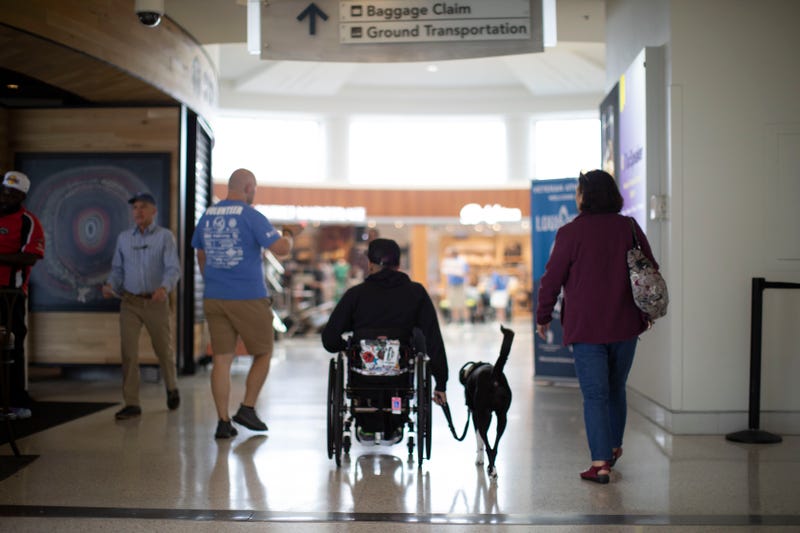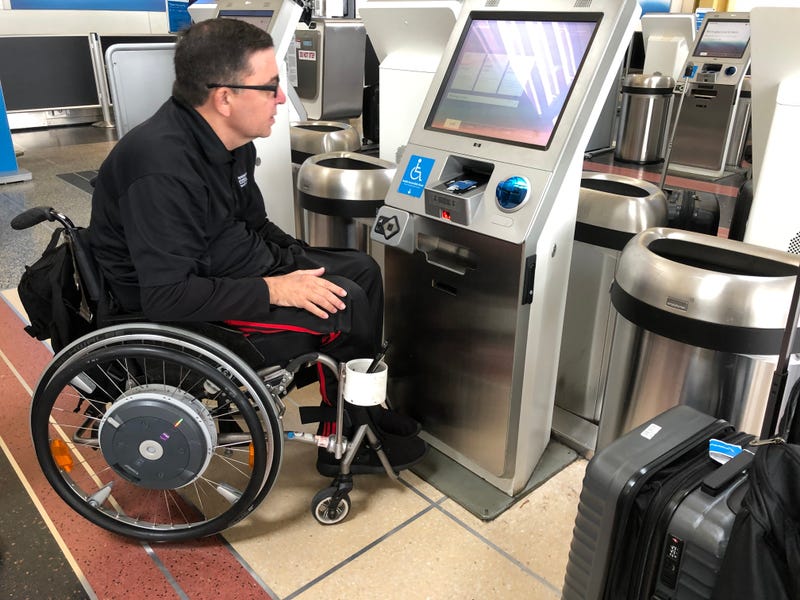
For 75 years the Paralyzed Veterans of America (PVA) has been an advocate for disabled veterans, and by extension, other disabled Americans. Despite making progress as the country is more accessible for wheelchair users, the president of the PVA, Charles Brown, says we can do better especially with air travel. When it comes to the dangers disabled veterans face when flying commercially, he has experienced it first hand.
"Two years ago, I was flying on an airline from my hometown, across the country," Brown told Connecting Vets. "When I was being transferred from my chair to the aisle chair, a trained but improperly trained individual was helping me transfer. They ended up dropping my legs, which caused me to fall and hit the jetway with my tailbone. I was injured, my tailbone was fractured."

At the hospital, doctors confirmed a tailbone fracture and a fast-growing infection. It took numerous surgeries and several months in the hospital to correct, Brown explained. Then when he contacted the airline, he was told he had waited too long and they would not even hear out his complaint as if he had surpassed some imaginary statute of limitations.
In reality, the situation is even worse according to Brown because the airlines have also been shown to be exempt from lawsuits filed by disabled people due to a technicality in the Air Carrier Access Act which was passed into law 35 years ago.
"I didn't even have the right of action to suit them. I couldn't even sue them for damages, lost wages, or any of that," he said.

The PVA is now fighting for disabled veterans and in reality all disabled people to be able to travel safely on commercial airlines. The main issues stem from a lack of wheelchair accessibility.
Currently, there are no handicap-specific seats on an airplane nor is there an option for disabled people to remain in their wheelchairs as they would on a train or city bus.
"We have to sit on that aisle chair and be drug through those armrests, those aisles, places to get to our seats, we're constantly getting hit and damaged and bruised in our hips and those transfers. Also, those idle chairs are ill-fitting, they're basically just a metal frame that has a little bit of padding on them. So it's dangerous. They're tippy, they're ill-fitting for positioning," Brown said, explaining that the current situation on commercial airplanes is dangerous and inhumane for disabled people.
The bathrooms on commercial planes are also impossible for people like Brown, whose disability is service-connected to his time in the Marine Corps. It is literally impossible to fit a wheelchair inside the current bathrooms.
On top of that, wheelchairs have to be stowed in the storage compartment during flight.
"We now have a reporting mechanism wherein 2019 and 2020, over 14,000 wheelchairs were damaged, or delayed or lost by airlines. Imagine having your wheelchair, set for you, not make it to where you're going to be when they go to look for it," Brown described.
PVA is now asking members of the public to sign a petition to help drum up support for an amendment to the Air Carrier Access Act which would better protect disabled vets, and anyone else confined to a wheelchair.


